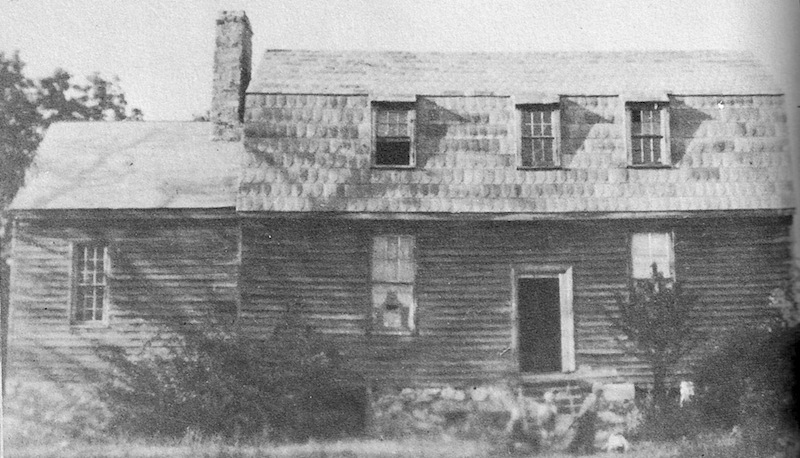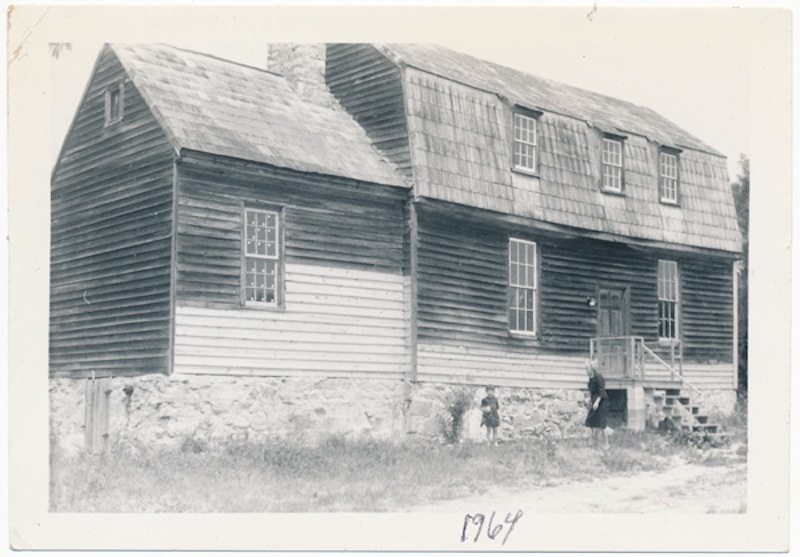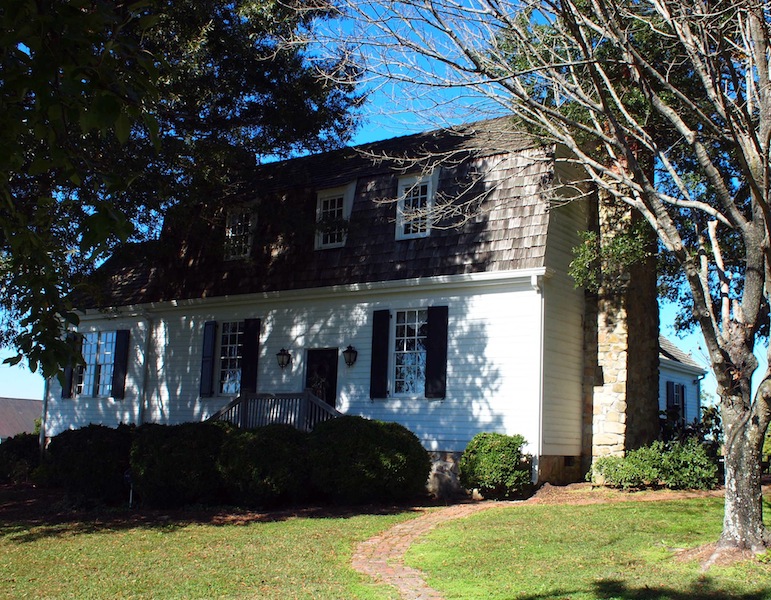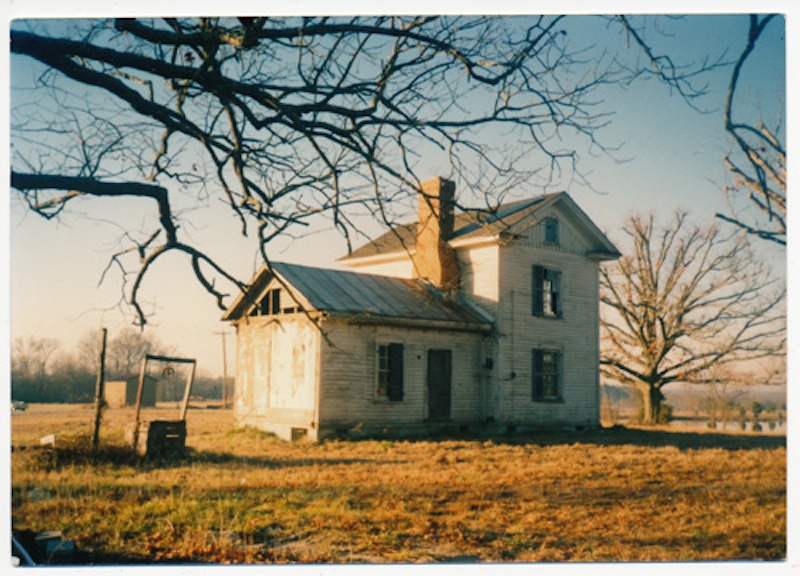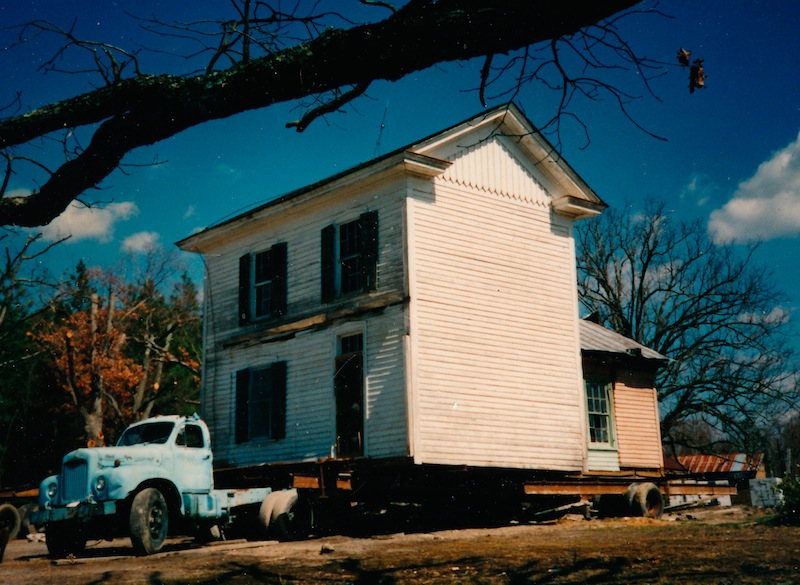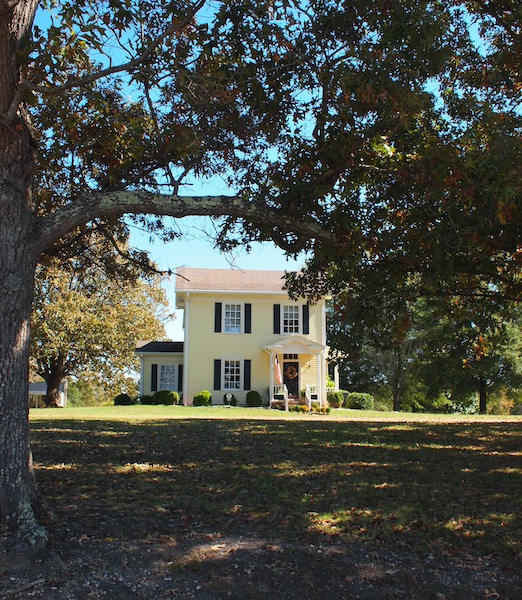Oakley & Aegypt
Locations:
Oakley: 2181 W. Orgainsville Road, Clarksville, Va. 23927 [map]
Aegypt: 3306 Trottinridge Road, Clarksville, Va. 23927 [map]
Hours:
Private Homes, not open to the public. The owners request that passersby respect their privacy.
Robert Alexander Boyd was born in Oakley, Mecklenburg County, Virginia, in 1842, the son of Richard and Lucy Ann Goode Boyd. Robert Alexander enrolled at Randolph-Macon College in 1858, but as did many of his classmates at the onset of the war, he left school to enlist in the Confederate forces. Richard Boyd, wanting his son to enlist as an officer, promptly arranged for Robert Alexander to attend Virginia Military Institute in lieu of immediate service. After graduating from VMI in 1863, Robert joined the 1st Engineers Troop (Col. T. M. R. Talcott commanding) as the 1st Sergeant of Company D and served until the end of the war. Boyd witnessed the surrender at Appomattox Courthouse, where his unit served as bodyguard for General Lee as they stood under the apple tree awaiting the surrender arrangements.
Oakley: 2181 W. Orgainsville Road, Clarksville, Va. 23927 [map]
Aegypt: 3306 Trottinridge Road, Clarksville, Va. 23927 [map]
Hours:
Private Homes, not open to the public. The owners request that passersby respect their privacy.
Immediately following Robert Boyd's return to Mecklenburg after the war, the Oakley community faced pillaging from Sheridan's men. A Richmond Times-Dispatch article, dated December 20, 1941, records the sale of the estate, and relates the following account originally documented by Robert Boyd (later known as Bob) in his diary:
"Mecklenburg County was pillaged by General Sheridan's men who passed through the county immediately after the surrender at Appomattox, and the story is told that some of the soldiers learned in the neighborhood that Mr. Boyd had a quantity of apple brandy at Oakley. They went to the house and demanded the 'applejack'. Mr. Boyd, then an elderly man, would have resisted with force of arms, but his son, Bob Boyd, who had just returned home from the Confederate Army, told his father to be quiet and let him manage the soldiers. He had the brandy brought from the garret and proceeded to sell it to the men. They paid in greenbacks, and willingly enough, the first United States currency that had been seen in that household for a long time. The soldiers then wanted to take the smokehouse too, but Bob Boyd managed that by calling the cook, Aunt Maria, and having her cook dinners for them, all the ham and bacon they wanted. They paid again." The Boyd family recalls Robert Alexander's pride in securing some of the first federal greenbacks in Mecklenburg County following the war.
After the war, R. A. Boyd built a new home, albeit smaller than the former plantation home, for his family on a section of Oakley called "Aegypt," where he spent his life as a farmer. He married Harriett Anna Boisseau Hatcher in 1882, and the couple had three children: Robert Massie, Shelton Goode, and Nannie Belle. Robert Alexander Boyd faced many emotional and psychological challenges after his parole from Appomattox Courthouse. The war had worn heavily on him. He died in June 1909.
Robert kept a wartime diary (December 1864-April 1865), which briefly documents activities of the 1st Engineers Regiment during the last few days of the war and mentions the surrender at Appomattox. The notes also concern the unit, and include lists of supplies, furloughs and desertions, and guard rosters. The papers show the following list of supplies were sent from home, father to son at Christmas 1864:
"From Richd. Boyd, Sr. Meck Co. Va. to R.A. Boyd C. Army: (To R.A. Boyd, 1st Sergeant Co. "D" 1st Va. Engineers)
Christmas Box, 1864
2 Hams 2 Geese nicely cooked & dressed; 1 Piece smoked beefs; 1 Opossum
2 1/2 lb. Peas; 1 lb. Potatoes; 1 lb. Turnips
3 gal. Molasses; 2 Doz. Eggs; 1 Peck Walnuts & Hickory nuts
2 Rich S. Po. Pies; 1 Doz. Puffs;
78 Biscuits; Pickle Preserves; 5 lbs. Butter
1 lb. Sugar; Brandy 1 qt.; 3 Doz. candles & 3 lbs. soap"
Contributor: Alexander B. Rawles, Boyd descendant
(c) Copyright 2014. All Rights Reserved. Designed by Jason Winter ||
